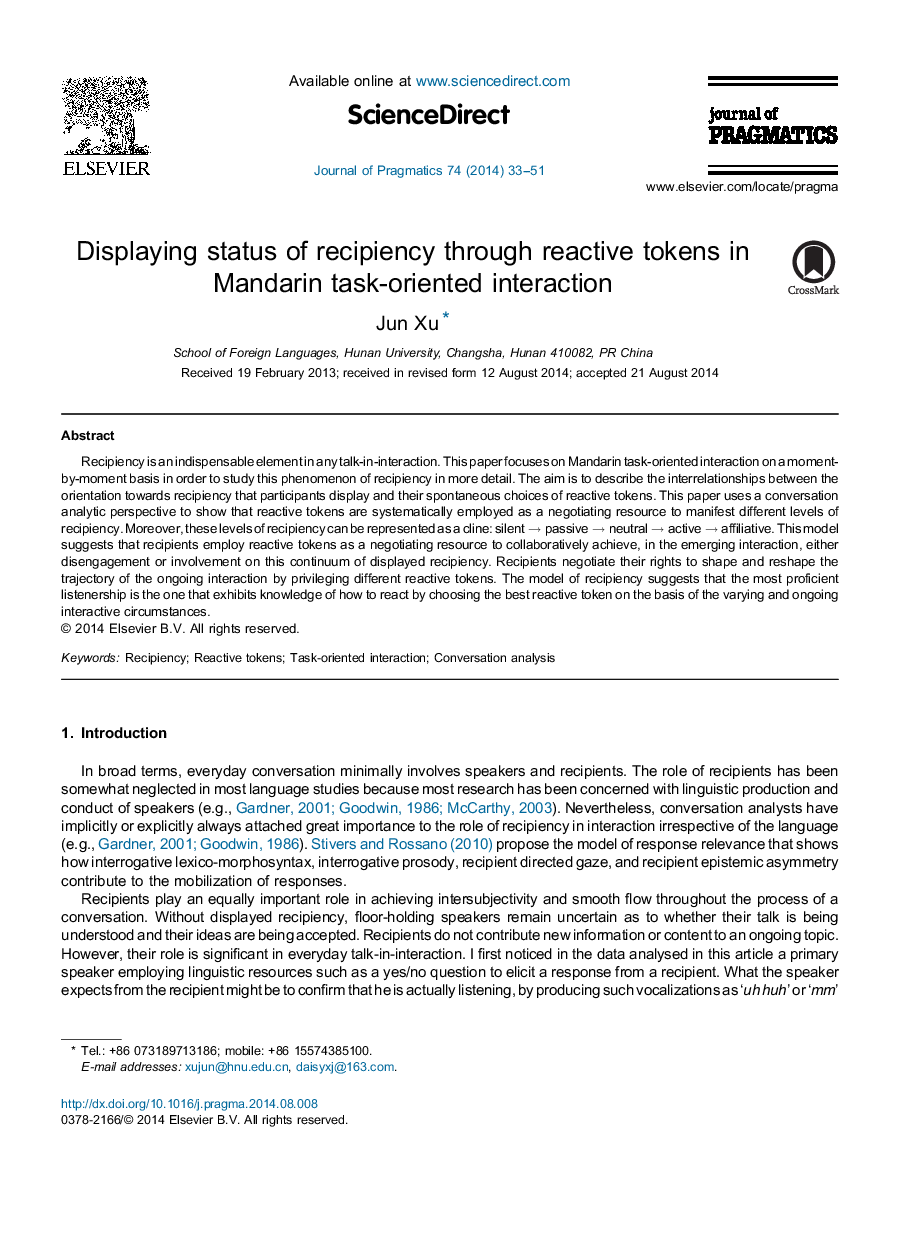| کد مقاله | کد نشریه | سال انتشار | مقاله انگلیسی | نسخه تمام متن |
|---|---|---|---|---|
| 932658 | 1474726 | 2014 | 19 صفحه PDF | دانلود رایگان |
• A hierarchy of recipiency displayed through reactive tokens is proposed.
• Participants negotiate their status of recipiency through reactive tokens.
• Participants use reactive tokens as an interactional resource.
• Knowing how to select a reactive token exhibits proficient listenership.
Recipiency is an indispensable element in any talk-in-interaction. This paper focuses on Mandarin task-oriented interaction on a moment-by-moment basis in order to study this phenomenon of recipiency in more detail. The aim is to describe the interrelationships between the orientation towards recipiency that participants display and their spontaneous choices of reactive tokens. This paper uses a conversation analytic perspective to show that reactive tokens are systematically employed as a negotiating resource to manifest different levels of recipiency. Moreover, these levels of recipiency can be represented as a cline: silent → passive → neutral → active → affiliative. This model suggests that recipients employ reactive tokens as a negotiating resource to collaboratively achieve, in the emerging interaction, either disengagement or involvement on this continuum of displayed recipiency. Recipients negotiate their rights to shape and reshape the trajectory of the ongoing interaction by privileging different reactive tokens. The model of recipiency suggests that the most proficient listenership is the one that exhibits knowledge of how to react by choosing the best reactive token on the basis of the varying and ongoing interactive circumstances.
Journal: Journal of Pragmatics - Volume 74, December 2014, Pages 33–51
